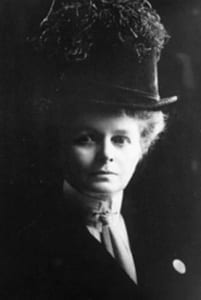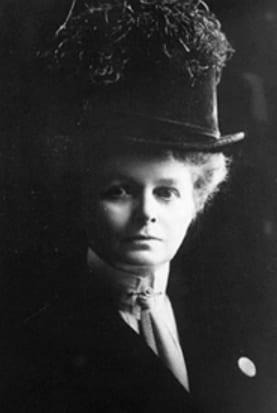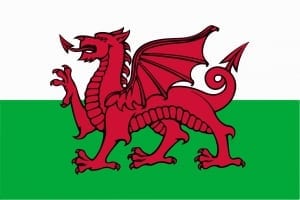Conference: A Celebration of the Women of Middleton and the estates of Wales
As part of it’s multi-million-pound heritage restoration project, the National Botanic Garden of Wales will be celebrating the women of Middleton Hall and other landed estates in Wales. The weekend of 24/25th November will see talks, walks and exhibitions championing the roles and experiences of these often overlooked individuals.

Inspired by Alice Abadam and her role in the women’s suffrage movement, these celebrations coincide with the centenary of the first votes for women and are in partnership with the Institute for the Study of Welsh Estates (ISWE Bangor University), Women’s Archive Wales and Carmarthenshire Antiquarians.
Day one will focus on women associated with the rich history of the Garden’s Middleton Hall Estate and is aimed at a non-specialist audience.
The second day, organised by ISWE, will look more closely at the broader cultural and social influences that women have had on Wales.
Saturday the 24th of November – Middleton Women through the ages
The first day focuses on the women of Middleton Hall estate. It will include talks, walks and a poster exhibition providing an insight into the history of the women associated with Middleton Hall, now the home of the National Botanic Garden of Wales. Of key significance, and the inspiration for the weekend, is Alice Abadam. Born at Middleton Hall in 1856 Alice Abadam was very active in the women’s suffrage movement from 1904 onwards. She has been described as:-
“One of the suffragette movement’s most prolific public speakers in early 20th century […] she both reflected upon the culmination of a marathon struggle and euphorically anticipated the dawn of a glowing future. […] She travelled all over the British Isles speaking on women’s suffrage and often addressed two meetings a day.”
Sunday the 25th of November – Patriarchal Paradigms – the roles and experiences of women on the landed estates of Wales
For generations, women played a critical part in the social and cultural life of Wales’ landed estates. Through their familial roles and networks, and as landowners in their own right, heiresses, cultural patrons, domestic servants, tenants and agricultural labourers, women were central to the functioning of estates and country houses.
They often exerted profound influences on the identities and fortunes of individual estates, and could play a significant role in shaping the nature of interactions between the country house, local communities and wider aspects of society.
The extraordinary biographies and achievements of elite women such as Lady Llanover, the Davies sisters of Gregynog, Catrin of Berain and the ‘Ladies of Llangollen’ are increasingly recognised as important parts of the story of Wales. Similarly, the widespread interest in family history over the last decade has played its part in fostering a recognition of the lives of the thousands of women who were employed as domestic servants – maids, cooks, housekeepers, charwomen and wet nurses – by the landed proprietors of Wales.
However, in general, the contributions made by women to the wide-ranging social, political, cultural and religious roles and impacts of estates in Wales have been severely overlooked by the established historiography, which tends to be dominated by portrayals of the patriarchal experience.
This one-day conference has been set up to redress the balance. Its objective is to establish a frame of reference for the next generation research into how the experiences of women can contribute towards a more comprehensive understanding of the history, culture and landscapes of Wales.
For booking information please visit:
https://botanicgarden.wales/visit/whats-on/vote-for-women-conference/

























